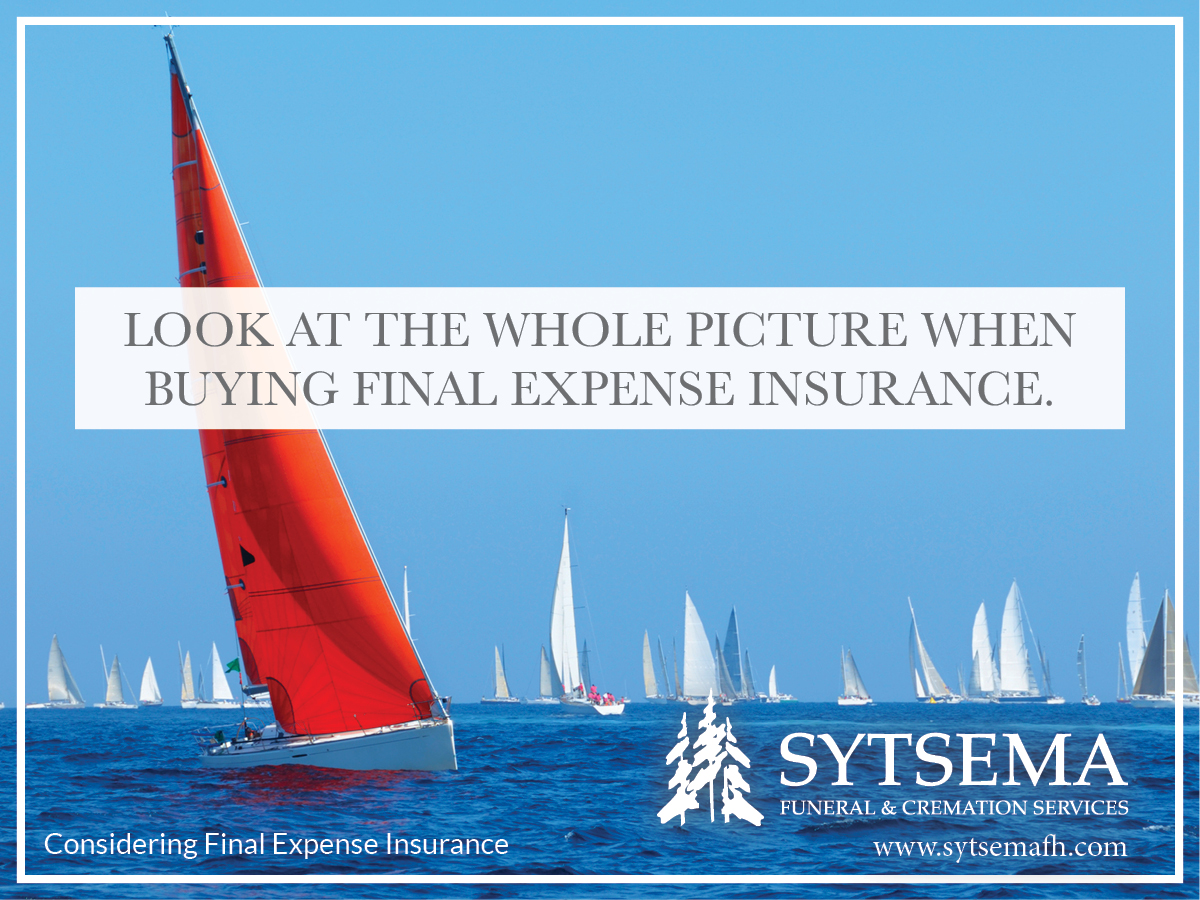
Three Things to Include in Your Funeral Plan
Posted on July 20, 2023 by Sytsema Funeral Home | Leave a comment
Posted under Advance funeral planning / preplanning
Many people plan their own funeral in advance. They keep their plan on file at the funeral home of their choice so that everyone in their family knows exactly what to do when they die. Others choose a more informal route and just tell their kids what they would like to have done. In either […]
Continue Reading
What to Look for When You are Buying Final Expense Insurance
Posted on March 16, 2023 by Sytsema Funeral Home | Leave a comment
Posted under Advance funeral planning / preplanning
Cost is important, but it’s not the whole story. Take a look at the premium, the amount you will pay each month, how long will you pay that amount? It is not uncommon to pay until you are 100 or even older. Will you be able to pay that amount each month as you age? […]
Continue Reading
Preplanning Your Funeral in your 60’s
Posted on February 2, 2023 by Sytsema Funeral Home | Leave a comment
Posted under Advance funeral planning / preplanning
According to a National Funeral Directors Association survey, more than half (62.5%) of us expect to participate in making our own funeral arrangements. And yet, less than a quarter of us have actually acted on that impulse. Not really so surprising since making funeral arrangements can literally be the very last thing we do. We can put it off right […]
Continue Reading
To Plan or Not to Plan Your Funeral in Advance
Posted on May 12, 2022 by Sytsema Funeral Home | Leave a comment
Posted under Advance funeral planning / preplanning
How does Advance funeral Planning affect the first hours before a funeral and the days and weeks that follow? Making the call: When a loved one passes, contacting the funeral home is the first thing that needs to be done. When a funeral plan is in place and on file at the funeral […]
Continue Reading
To Plan or Not to Plan Your Funeral in Advance
Posted on April 14, 2022 by Sytsema Funeral Home | Leave a comment
Posted under Advance funeral planning / preplanning
How does Advance Funeral Planning affect the first hours before a funeral and the days and weeks that follow? CALLING THE FUNERAL HOME / MORTUARY Funeral preplan already in place: When a funeral preplan is already in place and on file at the funeral home, there is no question as to who to […]
Continue Reading